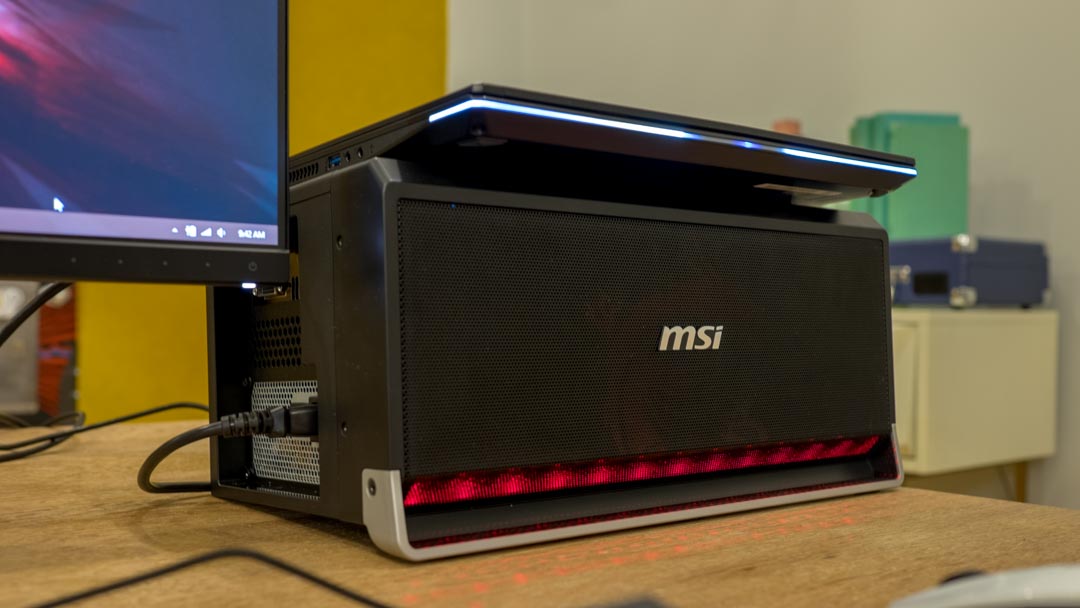Why you can trust TechRadar
As the MSI GS30 Shadow is a 13.3-inch laptop, it's considerably smaller and lighter than most gaming laptops. The machine measures 12.59 x 8.93 x 0.77 inches (319 x 226 x 19 mm) and weighs 2.65 pounds (1.20 kg). This of course makes it a bit silly to compare against the much larger 17.3-inch Aorus X7 Pro and MSI GT72 Dominator.
The similarly sized Alienware 13 looks just down right fat compared next to the GS30. Despite being Dell's smallest gaming machine at the moment, it still measures in at an inch thick and weighs 4.5 pounds (2.04 kg). Even the thin Origin EVO15-S can't compare despite its 4.3 pound (1.95 kg) frame, measuring 15.35 x 10.47 x 0.78 inches (389 x 265 x 19 mm).
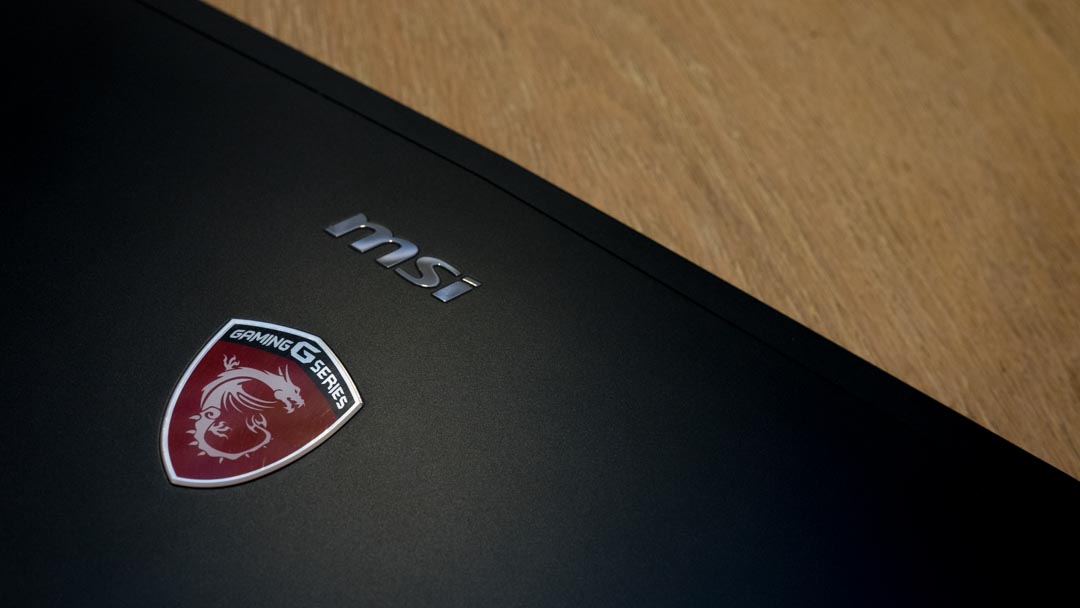
Of course, the MSI machine also gets away with a slimmer waistline by completely ditching a dedicated graphics chip, unlike every other PC gaming machine we've listed thus far.
Here is the MSI GS30 Shadow configuration given to TechRadar for this review:
Spec Sheet
- CPU: 2.5GHz Intel Core i7-4870HQ (quad-core, 6MB cache, 3.7GHz with Turbo Boost)
- Graphics: Intel Iris Pro Graphics 5200
- RAM: 16GB DDR3L (1600MHz)
- Screen: 13.3-inch, 1,920 x 1,080 Full HD, anti-reflective
- Storage: 128GB mSATA SSD x 2 RAID 0
- Ports: Ethernet, HDMI, microphone jack, headphone jack
- Connectivity: Intel 7260 dual band Wireless-AC, Bluetooth
- Camera: 720p HD webcam
- Weight: 2.65 pounds
- Size: 12.59 x 8.93 x 0.77 inches (W x D x H)
And here is the MSI Gaming Dock configuration given to TechRadar for this review:
- GPU capacity: PCIe x16 Slot for desktop graphics card
- Graphics: MSI Nvidia GeForce GTX 980 GAMING 4G LE
- Sound: 2 x 5-watt speakers with 5-watt subwoofer
- HDD Capacity: SATA slot for 3.5-inch HDD
- Ports: 4 x USB 3.0, Ethernet, microphone jack, headphone jack
- Weight: 20.39 pounds
- Dimensions: 14.34 x 8 x 8.09 inches (W x D x H)
For $1,899 (£1,200, AU$2,699), you get a fairly well-equipped system as seen above with the included GamingDock. For the purposes of our review, MSI sent along a system outfitted with a MSI GTX 980 Gaming 4G, which adds another $559 (£465, AU$679) to the final total for this unit as we tested it.
For more budget conscious gamers, we'd recommend getting the Nvidia 970, which runs for as little as $339 on Amazon (£269, AU$479). Alternatively, an even more affordable option would be the $209 (£178, AU$ 319) EVGA GeForce GTX 960 SuperSC.
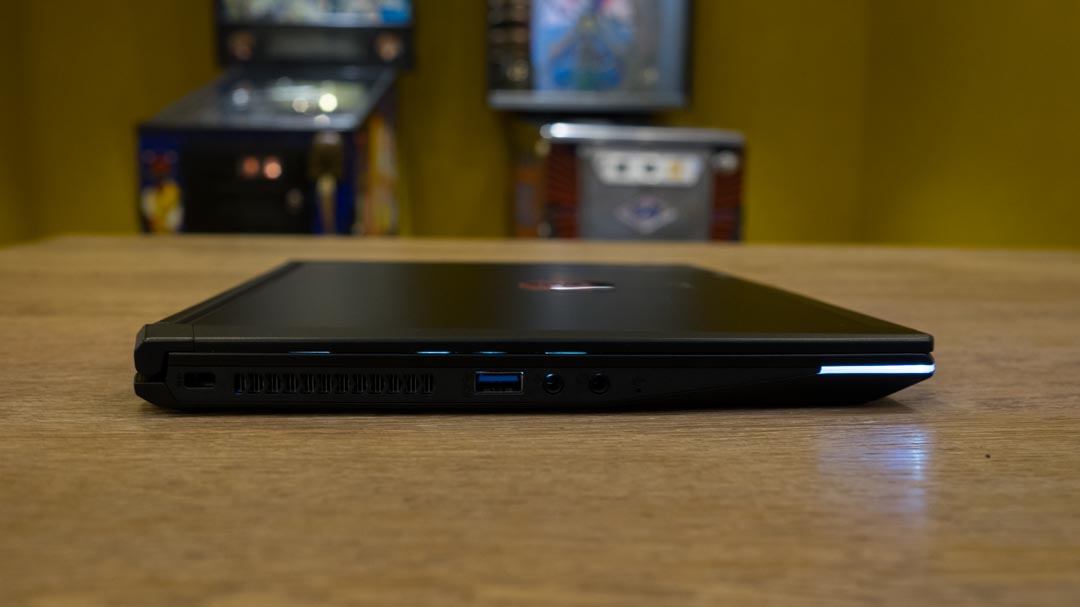
The MSI GS30 comes running the very same Intel Core i7 processor as in the Aorus X7 Pro, which is priced at $2,599 or £2,099 (about AU$3,320). The large 17.3-inch laptop has a few advantages over the gaming Ultrabook, namely a dual Nvidia GTX 970M setup with 512GB of SSD storage.
The MSI GT72 falls into a similar price bracket, retailing for $2,549 (£2,299, AU$3,299). Like the X7 Pro, the Dominator is built as a fully self-contained gaming laptop, equipped with a single Nvidia GTX 980M packing 8GB of video memory with an absurd 24GB of RAM, but only 256GB in SSD storage.
Parts not included
If you have any plans to game with the system attached to the GamingDock, be sure to bring your own keyboard and mouse. Technically, the laptop's keyboard and trackpad are both functional when the laptop is docked, but it's a bit awkward to reach your hands up to the elevated unit.
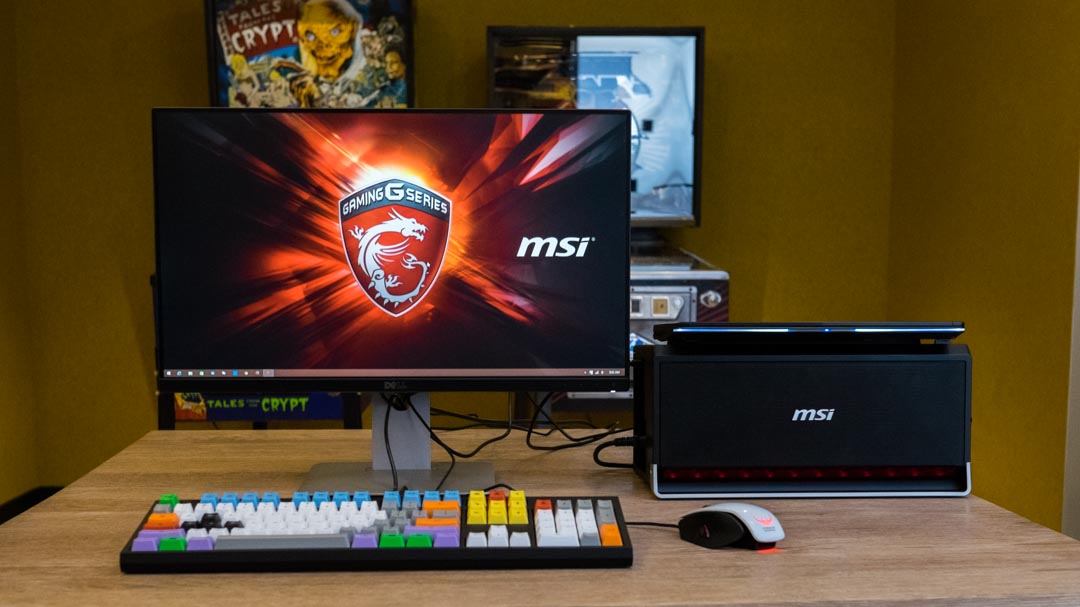
More importantly, the laptop's screen shuts off also automatically when it's docked with the GPU unit, so prepare to set up your own monitor. MSI says the screen shuts off due to bug with the GS30 Shadow. The company is planning to roll out a BIOS update in the future that will allow the laptop screen to stay on when docked.
For now, though, it seems Alienware has a slight leg up on MSI with its Graphics Amplifier, which allows users to enjoy the power of a desktop GPU without losing the use of their laptop's display.
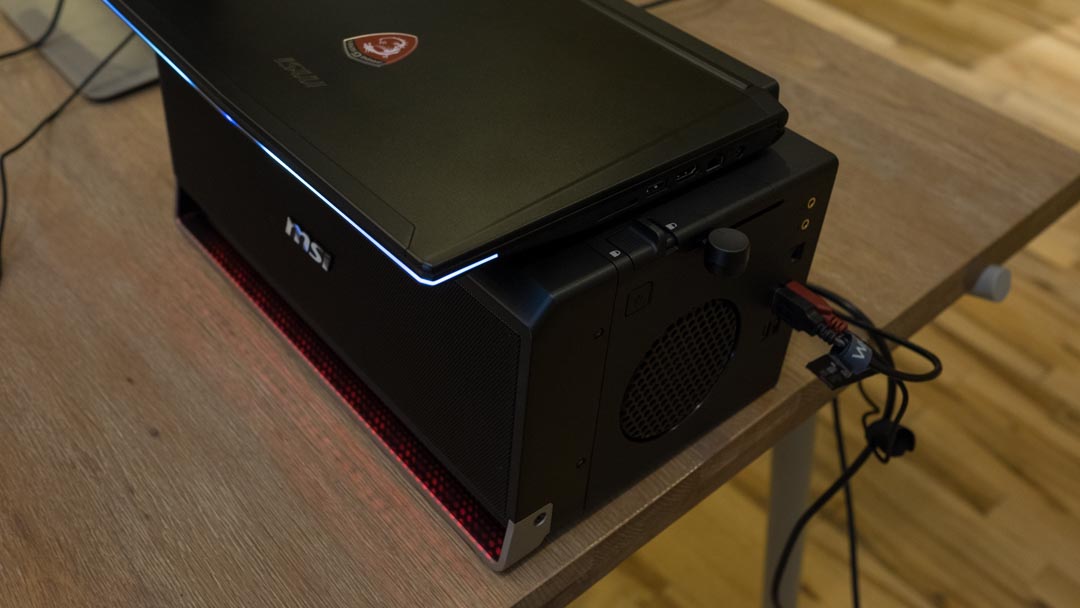
Purchasing a GS30 Shadow with the GamingDock is a big investment, priced at $1,900 for the two-piece package itself. You won't be able to play around with this machine right out of the box like any other gaming laptops, so make sure you have some money set aside to buy the extra equipment.
Kevin Lee was a former computing reporter at TechRadar. Kevin is now the SEO Updates Editor at IGN based in New York. He handles all of the best of tech buying guides while also dipping his hand in the entertainment and games evergreen content. Kevin has over eight years of experience in the tech and games publications with previous bylines at Polygon, PC World, and more. Outside of work, Kevin is major movie buff of cult and bad films. He also regularly plays flight & space sim and racing games. IRL he's a fan of archery, axe throwing, and board games.
